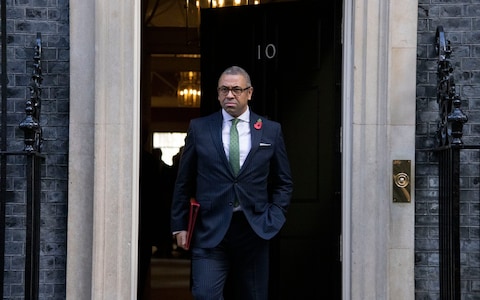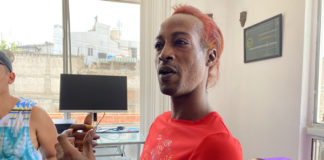No-one who has listened to the BBC in recent weeks can fail to have noticed the vigour with which the corporation has examined Qatar’s LGBT laws and attitudes.
Huge amounts of airtime have been given to the World Cup host’s intolerance of gay people, and to protests staged by campaigners including Peter Tatchell, the veteran activist.
Like other media organisations, it is the duty of the BBC to shine a spotlight on the human rights record of countries like Qatar, whose laws reflect its official religion, Islam.
The national broadcaster’s blanket coverage of the issue, however, has led to uncomfortable questions about the rigour of its investigations closer to home.
Critics have suggested that the BBC has shown less initiative when it comes to challenging extremist views in the UK, where Muslim preachers have told their disciples that homosexuals should be killed and gay Muslim men have been subjected to exorcisms.
One former culture secretary suggested “double standards” might be at play, and that not just the BBC but other media organisations were sometimes “terrified of being accused of racism” when it came to reporting on home soil.
British Muslims accuse BBC of picking on Qatar as ‘easy target’
British Muslims, meanwhile, have accused the BBC of picking on Qatar as an easy target and pointed out that its laws are in line with the beliefs of large numbers of Muslims both here and abroad. Are such criticisms fair?
Qatar has inevitably come under huge scrutiny because of its status as the World Cup host nation, and many of the countries taking part in the finals when they kick off tomorrow will be taking a stand against its human rights record. England captain Harry Kane is among those who will wear a rainbow-coloured armband, which is technically in breach of the country’s laws on promoting LGBT issues.
Homosexuality is illegal in Qatar and its secular courts can impose life imprisonment for gay sex. The country also has Sharia courts, which could impose the death penalty for homosexuality.
A recent report by the International Lesbian, Gay, Bisexual, Trans and Intersex Association said “it does not appear that any person has been executed for this reason, or at all”.
In 2019 the United Nations Working Group on Arbitrary Detentions reported that there were five people in prison in Qatar for “sodomy” and 26 women in prison for adultery.
Khalid Salman, one of Qatar’s World Cup ambassadors, stoked further controversy this month when he allegedly referred to homosexuality as “damage in the mind”, though he claimed the comment referred to drinking alcohol. Meanwhile James Cleverly, the Foreign Secretary, drew criticism for advising LGBT football fans to “respect the law” if they travel to Qatar.
James Cleverly, the Foreign Secretary. drew criticism for saying LGBT fans should ‘respect the law’ if they travel to Qatar
Credit: Jeff Gilbert
Out of 88 stories posted on the BBC website’s Qatar section in the past 12 months, 43 were either specifically about LGBT issues or the wider subject of human rights, which includes the country’s LGBT laws.
In the same period, the BBC website carried 82 articles in its Islam section, of which only one tackled the subject of human rights being suppressed in the UK in the name of Islam. Published in November 2021, it featured an interview with a gay Muslim man who described how his family wanted to “make me better”.
Qatar’s intolerance of LGBT people is out in the open, making it easy to report on. In Britain, where the laws protect rather than persecute sexual freedoms, the suppression of human rights is widespread, but hidden, meaning news organisations must be proactive if they are to expose it.
At the more extreme end of the scale are the likes of Abu Usamah at-Thahabi, currently a religious adviser at the Green Lane Masjid in Birmingham, who has in the past said that: “If I were to call homosexuals perverted, dirty, filthy dogs who should be murdered, that’s my freedom of speech, isn’t it?” His rantings were exposed by an undercover Channel 4 team.
At-Thahabi is an outlier, but the belief that homosexuality is haram, or forbidden, in Islam is not a fringe belief among British Muslims.
Around 40 per cent of Britain’s mosques are run by the Deobandi movement of Sunni Islam, from which the Taliban (which executes gay men) draws its ideology.
Shaikh Tauqir Ishaq, an Islamic scholar and part-time imam in Leicestershire (who is not Deobandi), is among those who believe that homosexuality, like adultery and even paedophilia, is a “lifestyle choice”.
Peter Tatchell stages a protest in Qatar against the country’s treatment of LGBT people
In a video posted on the London-based Muslim news website 5 Pillars, which bills itself as the only regulated Muslim news site in Europe (by Impress, the regulator set up with donations from Max Mosley) he said: “There is no such thing as a gay gene… Islam argues that these are lifestyle choices…you can say I have a desire for this or that, but Islam forbids things that are not good for us, like drinking alcohol. Allah says control your desires…
“Paedophilia – the same arguments people use, I can’t help it, it’s the way I was born – no, it’s your lifestyle, it’s your choice, it’s a confusion you have as to what is right and what is wrong.”
He told The Telegraph: “Most of the world doesn’t agree with LGBT, it’s not just Qatar or even Muslim countries. The vast, vast majority of Muslims in Britain know it’s not permitted.
“Qatar is being unfairly victimised here. Islam is very clear in that it forbids gay and lesbian relationships and that has been known for the past 1400 years. No country is perfect but Muslims feel there is a certain hypocrisy here as some countries are perpetrating crimes against their populations with impunity and others are being singled out on a religious issue.”
He pointed out that many adherents of Christianity and Judaism also believe homosexuality is wrong through their reading of the Old Testament but that in a democracy British Muslims abide by the laws of the country in which they live.
The 5 Pillars website carried an interview with Sheikh Hamza Sodagar, an Islamic scholar, in which he said homosexuality was “evil” and “unnatural”. It also published an opinion piece saying there could never be any such thing as a “gay Muslim” and another which said gay people should “seek Allah’s assistance… to overcome these desires”.
LGBT activists hold placards in front of the FIFA museum in Germany earlier this month
Credit: FABRICE COFFRINI
/AFP
Roshan Salih, the website’s Welsh-Sri Lankan editor, told The Telegraph: “It is universally accepted among Muslims – apart from a few crackpots – that homosexuality is a sin, so it is outlawed. That doesn’t mean we should go around persecuting homosexuals. Muslims in this country want to live by their religion and if there is a conflict between British law and Islam we live by the law.”
Mr Salih, who has worked in Qatar in the past, said Britain was using the World Cup to spread “cultural imperialism” by trying to impose Western values on a sovereign nation whose laws are guided by the Koran.
He accused the BBC of being “a bunch of hypocrites”, saying that “if you are going to criticise countries for their human rights there should be a semblance of fairness – I don’t remember this level of criticism before the Beijing Olympics, which makes me think there is an Islamophobic element to this”.
‘Tendency in the media to be terrified of being accused of racism’
Accusations of Islamophobia, of course, set off loud alarm bells at the BBC.
John Whittingdale, the former culture secretary, said: “I think there is a tendency in the media to be terrified of being accused of racism so to some extent they are less enthusiastic about exposing attitudes or law breaking at home. I also think there are sometimes double standards applied in terms of the coverage of one religion against another.”
Some more liberal Muslims have tried to argue that the Koran does not, in fact, contain any explicit condemnation of homosexuality, but they are few and far between. Even arguing that the theory of evolution is compatible with the Koran has resulted in death threats for the likes of Usama Hasan, an east London imam.
Dr Hasan said: “The debate about the interpretations of the Koran [regarding homosexuality] is slowly happening within the British Muslim community, but the prevailing view is still that homosexuality is a sin and people who have those desires should be celibate. That does lead to homophobic violence in Muslim communities. I personally would call for a greater debate with compassion, understanding and dialogue.”
Charlotte Littlewood, of the Henry Jackson Society, a foreign policy think-tank, said: “The opposition to Qatar over its human rights abuses is necessary and commendable, but it should act as an opportunity to reflect on whether we are taking a strong stance for LGBTQ rights here in the UK.
“Imams have preached that homosexuals should be killed…we need to realise the threat posed to the LGBT community is also here in the UK.”
A BBC spokesman said: “BBC News has reported on many issues surrounding the decision to hold the World Cup in Qatar, including the reaction of fans and campaigners to the punitive laws on homosexuality in that country. Covering a topical news issue in one country doesn’t influence whether or not we explore a separate issue in another country, and as your readers will be aware, the fear of criticism does not stop the BBC from reporting. Our job is to report, not to campaign.”







